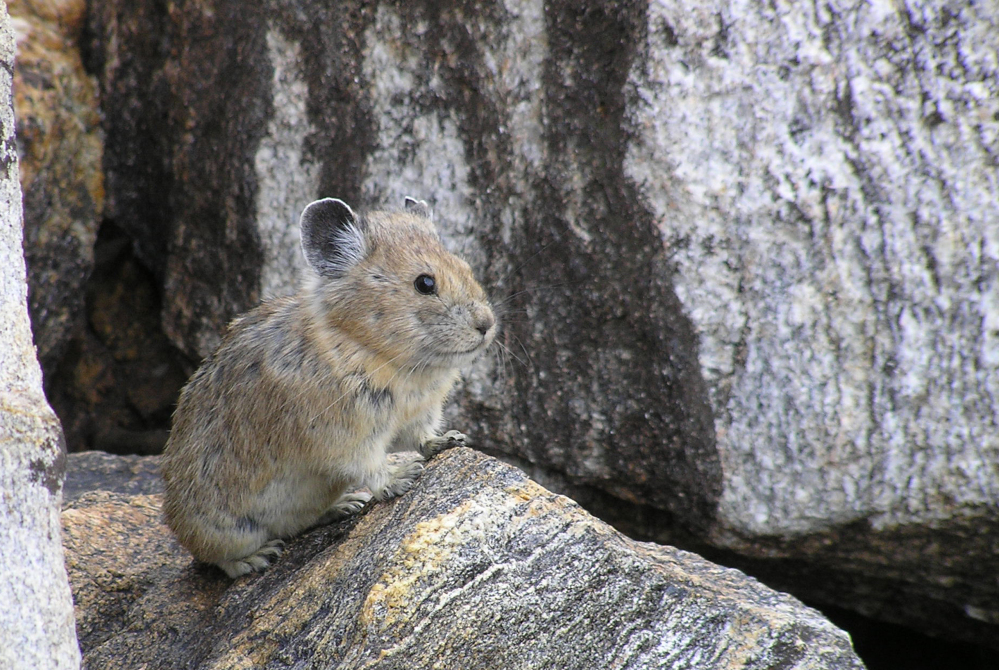SALT LAKE CITY — Populations of a small rabbit-like animal known as the American pika are vanishing in many mountainous areas of the West as climate change alters its habitat, according to findings of a study released Thursday by the U.S. Geological Survey.
The range for the mountain-dwelling herbivore is decreasing in southern Utah, northeastern California and in the Great Basin that covers most of Nevada and parts of Utah, Oregon, Idaho and California, the federal agency concluded after studying the cuddly looking critter from 2012-2015.
The findings come more than a decade after the same agency, and same lead researcher, concluded in 2003 that pika populations were dwindling, at least partly because of global warming. This new study makes a more authoritative statement about the role of global warming on the animal.
“The longer we go along, the evidence continues to suggest that climate is the single strongest factor,” said Erik Beever, a research ecologist with the U.S. Geological Survey and lead author. “It’s not to say it’s the only thing, but by far it’s the largest single factor.”
The pika’s habitat on mountain slopes, known as talus, are hotter and drier in the summer and more harsh in the winter with less snowpack to serve as an insulator, Beever said.
The study didn’t quantify how many total American pika still exist, but honed in on several areas where the small animal no longer roams in search of grass, weeds and wildflowers to eat.
At Utah’s Zion National Park, they’re gone all together despite being seen as recently as 2011. In nearby Cedar Breaks National Monument, they’re no longer in three-fourths of their historical habitat, Beever said.
Pikas were only found in 11 of 29 sites where they once lived in northeastern California.
In the Great Basin, which stretches from Utah’s Wasatch Mountains in the east to the Sierra Nevada and Cascade Mountains in the west, the population is down about 44 percent compared to historical records.
“It’s not that they’ve just moved, they are gone all together,” Beever said.
President Barack Obama mentioned the plight of the pika this summer when he spoke at Yosemite National Park about the damage climate change is inflicting on the nation’s national parks. He said the pika was being forced further upslope at Yosemite to escape the heat.
Wildlife advocacy groups have long been worried about the pika amid global warming, but their previous requests to get the animal listed as an endangered species have failed. The U.S. Fish and Wildlife Service rejected a request in 2010, saying not all populations were declining.
A new request was made this April by a high school student in New York state.
The U.S. Fish and Wildlife Service is set to release its decision on that in early September, but the agency’s staff won’t take into account the new study because they are bound by rules to only take into account information submitted with the petition..
Send questions/comments to the editors.



Comments are no longer available on this story